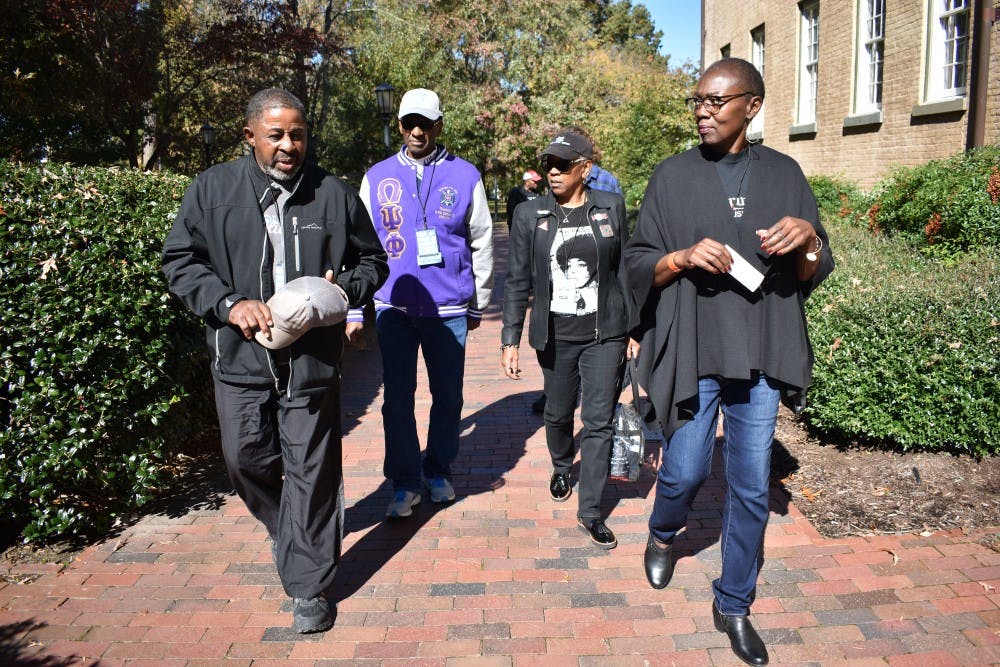A sea of white and Carolina Blue covered Stadium Drive before Saturday’s Homecoming football game, but several individuals wearing all black stood out among the crowd.
Immediately following the Black Alumni Reunion’s Homecoming tailgate, a group of nine UNC graduates, organized by Janine “Cookie” Bell and Evelyn Dove, walked from the Bell Tower to McCorkle Place.
According to a press release, the graduates – who requested participants dress in black – aimed to “make a visible statement of presence,” due to “the magnitude and stench of the Silent Sam debacle.”
“Black Alumni Reunion is one of the largest reunion groups that comes for Homecoming, so we want to use that time to make sure people are aware of what’s going on,” said Dawne Posey-Orr, one of the demonstration participants and a 1978 UNC graduate.
Participants in the demonstration first stopped to pour libation, a ritual to acknowledge the dead, at the Unsung Founders Memorial, a gift from the UNC Class of 2002 that acknowledges the people of color, enslaved and free, who constructed buildings across UNC’s campus.
The group then walked to the base of the Silent Sam statue, where Bell read affirmations by Maya Angelou and James Weldon Johnson. Bell also read the press release, which included their intentions in participating in the demonstration. The list of intentions included affirming Black students, faculty and Maya Little. One of the intentions was also to endorse Chancellor Folt's promise in her University Day ceremony speech “to right the wrongs of history, so they're never again inflicted.”
“I’m an administrator, so I understand that it’s difficult to try to work with all constituents,” said Carol Ben-Davies, a 1998 graduate. “But I think at the end of the day, this is too important of an issue.”
Ben-Davies, who is the assistant dean of students at Purdue University, said when she attended UNC, she wasn’t fully aware of the statue’s history.
“Once I found out what his main purpose was, the dedication that was there, we need to not have that at the front door of our campus,” Ben-Davies said. “I love my institution, I stay committed, I want to support it any way I can and being vocal like this is another way to stay supportive of a place we love.”




